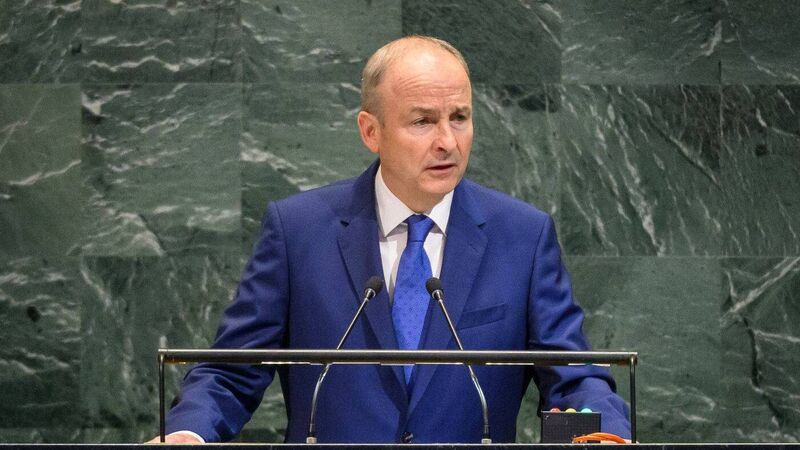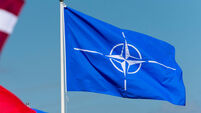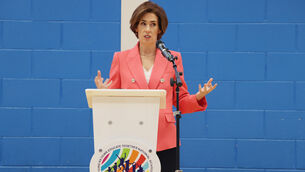Irish people have a 'degree of naivety' about 'existential threats' from Russia, says Taoiseach

Taoiseach Micheál Martin delivering Ireland’s national statement at the UN General Assembly last week. At the European Political Community meeting on Thursday, the Taoiseach said: 'A clear pattern is emerging if you take everything that's happened over the last number of weeks and months, in terms of drone incursions, in terms of maritime activity among cables and... in terms of the undermining of politics in various member states.' Picture: Government Press Office
Taoiseach Micheál Martin has claimed there is a "degree of naivety" among the Irish public as to the "existential threats" from Russia and other aggressors.
While not explicitly mentioning Ireland, Danish prime minister Mette Frederiksen, told the European Political Community meeting in Copenhagen that while for some the “threat of Russia” seems “further away”, countries can no longer be “naive”.














